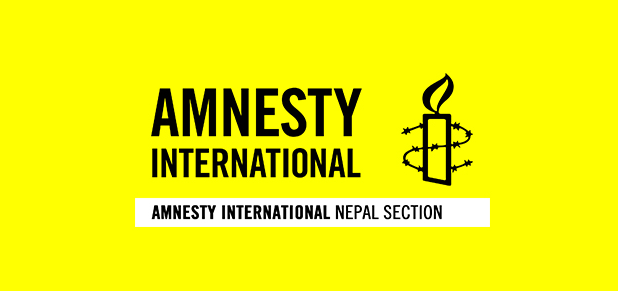AI asks political forces to take decisive action to save lives

By A Staff Reporter
Kathmandu, June 15: As the country endures a deadly second wave of COVID-19, political parties must set aside their differences and take decisive action in the coming days to save thousands of lives, said Amnesty International (AI) in a new briefing Struggling to Breathe: The Second Wave of Covid-19 in Nepal published here on Monday, also calling for increased support from the international community.
Nepal’s infrastructure is already creaking under current caseloads, with dire shortages of oxygen, ICU beds, personal protective equipment and vaccine, AI stated, adding that public health experts believe the number of deaths is underestimated.
According to a UN report released on May 14, Nepal had the highest ‘effective rate of reproduction’ and highest test positivity rate of any country in the world.
The current crisis is being exacerbated by a mutated virus that leads to higher levels of mortality, and additional complications such as pneumonia, which is increasing demand for oxygen, said AI.
The lack of COVID-19 vaccines has also severely hampered the country’s efforts to reduce the burden on the health system and curb the spread of the virus.
“The country’s health care system is teetering, with hospitals reaching capacity, and overstretched, hopelessly under-resourced staffs are unable to keep up with overwhelming demand,” said Yamini Mishra, Amnesty International’s Asia-Pacific Director.
“Right now, to save thousands of lives, Nepal’s authorities must prioritize the procurement and supply of oxygen, which until now has been held up by inaction and bureaucratic wrangling. For its part, the international community must urgently provide supplies of oxygen, ventilators, vaccines and other life-saving products.”
The briefing, examines the virus’ devastating impact on the country’s underfunded health system and the consequences of medicine and equipment shortages for hospital staff and Covid-19 patients.
The briefing also addresses the harsh impact the pandemic is having on the country’s most marginalized groups.
One health worker Amnesty International spoke to summed up the scale of the situation at his hospital as being “like that of a war zone”.
Another described the crisis as being worse than the devastating earthquake that hit Nepal in April 2015, which killed almost 9,000 people and injured almost 22,000.
Nepal, like other countries across South Asia, is also facing a drastic shortage of vaccines.
COVAX, a global initiative to help low- and middle-income countries access vaccines is falling short on its commitments and richer countries continue to hoard surplus supplies well beyond their requirements.
Nepal desperately needs more vaccines to help combat this deadly second wave of Covid-19. While countries like China and the US have now pledged to provide vaccines to Nepal, this is not enough, said Mishra.
“The international community had to come together and provide unequivocal support to global mechanisms such as COVAX to ensure equitable access to vaccines and prioritize resource and technology transfer to produce vaccines locally,” she added.
The Covid-19 situation in Nepal is changing daily, and the number of infections recorded since mid-May 2021 appears to be reducing as of 7 June.
Recent News

Do not make expressions casting dout on election: EC
14 Apr, 2022
CM Bhatta says may New Year 2079 BS inspire positive thinking
14 Apr, 2022
Three new cases, 44 recoveries in 24 hours
14 Apr, 2022
689 climbers of 84 teams so far acquire permits for climbing various peaks this spring season
14 Apr, 2022
How the rising cost of living crisis is impacting Nepal
14 Apr, 2022
US military confirms an interstellar meteor collided with Earth
14 Apr, 2022
Valneva Covid vaccine approved for use in UK
14 Apr, 2022
Chair Prachanda highlights need of unity among Maoist, Communist forces
14 Apr, 2022
Ranbir Kapoor and Alia Bhatt: Bollywood toasts star couple on wedding
14 Apr, 2022
President Bhandari confers decorations (Photo Feature)
14 Apr, 2022










